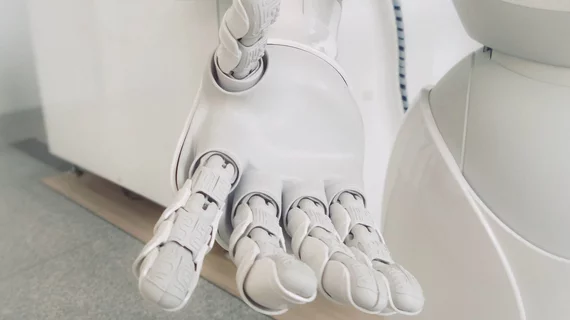Soft printable robots may help care for the elderly with a gentle touch
Industrial and biomedical engineers at Purdue University have demonstrated a way to print devices in 3D such that they squeeze, move and otherwise feel like human hands. The team’s hope is to create soft robots that can help care for elderly patients with a human-like touch when nursing shortages become the norm.
Ramses Martinez, PhD, and co-authors published their work online April 8 in Advanced Functional Materials.
Building off recent advances in material science that are promising but likely too complex for commercialization, Martinez and colleagues came up with a novel process for designing architected soft machines (ASMs).
The process incorporates an algorithm that can quickly convert a computer-aided design (CAD) model of a robot into an ASM using any readily available 3D printer, according to Purdue’s newsroom.
Because the designer can use the CAD to plan how the joints of the soft robot will move, the result is ASMs that replicate muscle movements using miniature motors that pull nylon lines to, for example, close the soft robot’s fingers.
“ASMs can perform complex motions such as gripping or crawling with ease, and this work constitutes a step forward toward the development of autonomous and lightweight soft robots,” Martinez said. “The capability of ASMs to change their body configuration and gait to adapt to a wide variety of environments has the potential to not only improve caregiving but also disaster-response robotics.”
Purdue’s newsroom notes that the population of people over 60 is expected to more than double by 2050, straining the healthcare system’s ability to tend to elderly patients who require 24-hour care.
Martinez added that existing caregiving robots are limited to nonphysical social interactions, as their hard edges and surfaces present safety concerns.

